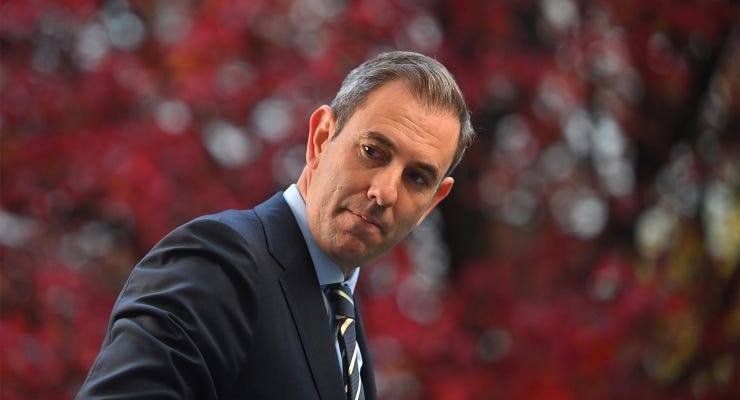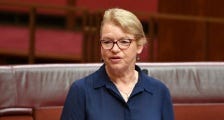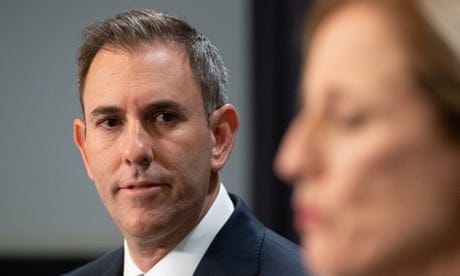It’s Budget Day today, and I’ve published a couple of articles looking at the options and likely outcomes. The first was in Crikey. The headline and standfirst give a pretty good summary
Here’s what should — but won’t — be in tomorrow’s disappointing federal budget
Progressive tax reform? Significant improvement of welfare payments? Addressing falling wages? Don't hold your breath.
The second, in the Guardian, was paired with a piece by Angela Jackson, and ran with the headline
A simple solution but not an easy one
I argued that the government could keep faith with voters by implementing the Stage 3 tax cuts in 2024-25, but promising to repeal or modify them after the next election.
I’ve reproduced both articles over the fold
Here’s what should — but won’t — be in tomorrow’s disappointing federal budget
Progressive tax reform? Significant improvement of welfare payments? Addressing falling wages? Don't hold your breath.
May 08, 2023
Give this article
As we approach Tuesday’s federal budget, the economic situation is one in which Labor supporters ought to be looking forward to some major progress. Australia has effectively reached full employment (when there are roughly as many employment vacancies as jobseekers) for the first time in 50 years. As a result, the number of recipients of JobSeeker benefits has fallen sharply, meaning the cost of increasing those benefits is less than it has been in many years.
Windfall tax revenues have returned the “headline” budget starting point to surplus. In real terms, the situation is even better than that. Because the rate of interest on public debt is below the inflation rate, the real value of debt is declining automatically. The ratio of public debt to GDP is falling even faster, and is far below the level considered acceptable in most developed countries. The sharp increase in the debt-GDP ratio — foreseen as recently as a year ago — now looks modest, if it happens at all.
The government has flagged some increases in resource rent taxes that will improve the budget position a little further. There is plenty of room to raise more revenue, thanks to the failure of the previous government to close loopholes. Superannuation concessions, negative gearing, franking credits and a wide variety of tax rorts could be closed off, allowing us to meet vital needs in health, education and aged care.
Most importantly, the picture would change radically if the budget included a progressive reform of income tax scales, to take effect in 2025-26, after the next election. This would keep faith with the 2022 promise to implement Morrison’s stage three tax cuts on schedule, and let voters decide whether they want to make them permanent.
We will see nothing like this. In rhetoric that smacks of deception, self-deception or both, the government has hyped up the increase in nominal interest payments as a major burden on the budget. This in turn is a reason for failing to meet basic needs (although $240 million could be found for a vanity stadium project in Hobart).
The budget measures floated are the kind we might expect from a tired conservative government that has run out of ideas and is trying to buy some time. To see them as the leading measures in the first full budget of a new Labor government is truly depressing.
‘Wake-up call’: Senate report urges income support reform in the budget
This is most obvious in relation to JobSeeker. Needing independent Senator David Pocock’s vote for its industrial relations legislation, the Labor government resorted to the favourite expedient of a tired government: establishing a committee. But when the grandly named Economic Inclusion Advisory Committee came back with an answer everyone expected — that JobSeeker benefits are too low to live on — the government reacted with shellshocked surprise.
After a string of leaks suggesting that an increase would be too unpopular to countenance, there was a retreat to a half-baked compromise, providing an increase to people over 55, who presumably can’t be stigmatised as undeserving. Similarly half-baked is a proposal to partially reverse the Gillard government’s decision to push single parents onto JobSeeker.
Then there’s the “energy bill relief”. The fact that real wages are falling is a major economic problem. But rather than address the actual issue, the government has promoted a framing in terms of “cost of living” pressures, tying it to last year’s disruptions in energy markets, which are still feeding their way into electricity bills. The response is a convoluted system of handouts, packaged into reduced electricity bills.
A short-term handout is rarely an optimal response to economic problems, except when it is needed as a stimulus to slumping demand. But if one was needed, the government could have followed the example of its predecessors and extended the low and middle income tax offset for yet another year. Such a measure could have laid the basis for a proper reform of the income tax system, including modification of the stage three tax cuts.
There’s still time for a turnaround. The leaks we have seen so far may turn out to be nothing more than test balloons. But so far, this government has been one that regularly disappoints its supporters, even after preparing for disappointment.
John Quiggin: a simple solution but not an easy one
Labor is trapped between the unmet needs built up over a decade of LNP rule, and the election commitments the party made to ensure a win in 2022. The most important, in terms of revenue forgone, is the promise to implement the stage-three tax cuts, for which Labor voted in opposition. The difficulties are increased by the buildup of public debt during the Covid-19 pandemic. Much of this, like the earlier increase in debt after the GFC, was a necessary consequence of fiscal expansion, which prevented a deep recession. And, at around 40% of national income, government debt is low by world standards. But Labor’s strident rhetoric on the topic means that it has little room to move on a commitment to stabilise debt.
There is a simple solution to this problem but not an easy one. Jim Chalmers could announce that the tax cuts will be delivered on schedule for 2024-25, but cancelled (or modified) after the next election. There are plenty of precedents for this. John Howard, having promised that he would “never ever” introduce a GST, changed his mind, took the proposal to an election and won (albeit narrowly). And the current Labor government has implemented the sunset clause on the low and middle income earners tax offset, which was part of Scott Morrison’s plans, thereby increasing taxes on millions of Australians.
If the stage-three tax cuts were only temporary, their impact on public debt would be negligible, of the order of one percentage point, if they ran for a year. So the government would have no need to delay urgent measures such as increases in the jobseeker payment.
Any increase in taxes is politically risky. But with the opposition floundering, there will never be a better time to tackle this task. Labor can, if it chooses, keep its 2022 promises and still do what is needed to address Australia’s real problems. A “steady as she goes” budget will be an admission that the Morrison government’s tax and expenditure policies were essentially correct, and that Labor just needs to make some minor adjustments.







Best thing I've read on this topic
Thanks for posting.
The hijacking of federal Treasurers by the Treasury department officials is as age old as Canberra itself. Politicians who are made Treasurer then promptly fall into line with any plan put forward by their department. This idea that a minister MUST support his department even when they are wrong, is a perverse form of loyalty. The first loyalty of any federal politician must have is that of a loyalty to the people of Australia. Budgetary policy must benefit the majority of Australians not some minority group. If the ALP government and its appointed treasurer fails to bring down a budget that benefits the majority of Australians, then they become just another government (and treasurer) that has fallen for the Canberra trap of looking only for a quick fix.